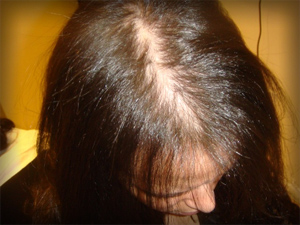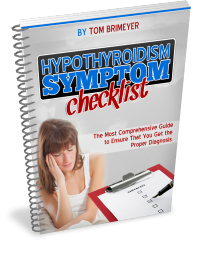Hypothyroidism Symptom Checklist
Are you unsure as to whether or not you suffer from hypothyroidism? Does your doctor tell you that your TSH levels are fine but you still believe that you’re hypothyroid? If you answered yes to either of these questions then this hypothyroidism symptom checklist can help.
Problems with TSH Testing
It’s well known that TSH levels are not a very accurate indicator of hypothyroidism. But for some reason, the medical community continues to use it, and oftentimes as the only reference point. But there are many well known factors that can lower TSH levels in hypothyroid people which this test does not account for. And because of this, hypothyroidism has become extremely under-diagnosed today.
But that’s also where a good hypothyroidism symptom checklist can come in handy. It can give you a good indication of whether or not hypothyroidism is the likely culprit of your hypothyroidism symptoms.
Hypothyroidism Symptom Checklist
Using this hypothyroidism symptom checklist is easy. All you have to do is place a check mark next to any symptom below that you’ve experienced more recently or as a child.
By using this hypothyroidism symptom checklist to look back at your childhood it becomes easy to see if you were at risk of hypothyroidism as a child which typically worsens over time.
Hypothyroidism Symptom | As A Child | Currently |
| I have a diagnosed thyroid problem | ||
| I have a family history of thyroid disease | ||
| I am gaining or losing weight inappropriately | ||
| I am unable to lose weight with diet/exercise | ||
| I often feel and look puffy | ||
| I tend to gain weight around my mid-section | ||
| I don’t have much of an appetite | ||
| I have Irritable Bowel Syndrome | ||
| I am constipated | ||
| I have other gastrointestinal problems | ||
| I am sensitive to strong odors (perfumes, cigarette smoke, etc.) | ||
| I have gallstones, or I’ve had my gallbladder removed | ||
| I have other liver problems | ||
| I often feel cold when everyone around me is comfortable | ||
| My hands, feet, nose, maybe even my rear end are cold, especially at night | ||
| I am less tolerant of hot weather | ||
| I feel tickling or prickly sensations on my skin, as if a bug was on me | ||
| I have persistent fatigue | ||
| I have low energy | ||
| Feeling run down, sluggish, lethargic | ||
| It takes me longer to recover from activities | ||
| I feel worse after exercise or other exertion | ||
| It takes me much longer than normal to complete tasks | ||
| I’ve had changes in perspiration: I sweat very little, or I sweat heavily | ||
| My hair is coarse and dry, breaking, brittle | ||
| My hair is falling out | ||
| My skin is coarse, dry, scaly, and thick | ||
| I have orange calluses, or my palms have an orange tone | ||
| I bruise easily | ||
| I have less body hair (armpit, chest, arms, legs, etc) | ||
| I can’t pinch the skin on my outer upper arms/upper thighs because it’s too thick | ||
| My face looks puffy/swollen, especially my upper eyelids | ||
| My skin color looks pale and a bit yellow | ||
| I have acne | ||
| My nails are thin and brittle and break easily | ||
| I have ridges on my nails | ||
| I have bulging eyes | ||
| My eyelids are puffy/swollen | ||
| The outer third of my eyebrows are thinning or missing | ||
| My eyes feel gritty and dry | ||
| My eyes feel sensitive to light | ||
| My eyes get jumpy/tics in eyes (eyelid spasms) | ||
| My vision has gotten worse/suddenly need reading glasses | ||
| I have a feeling of fullness in neck or throat | ||
| My neck appears swollen | ||
| I am having trouble swallowing or spasms in my esophagus | ||
| I have a hoarse or gravelly voice | ||
| My tongue is swollen and has scalloped edges/teeth marks | ||
| I am having trouble clearly annunciating words, as if talking with my mouth full | ||
| My speech is slow/it takes effort to speak | ||
| I have chronic gum infections | ||
| I have receding (or, overdeveloped) gums | ||
| Tooth decay is particularly a problem | ||
| I have TMJ (Temporomandibular Joint dysfunction) | ||
| I am snoring more lately | ||
| I have/may have sleep apnea | ||
| I have insomnia | ||
| I have frequent nightmares | ||
| I often need to get up in the middle of the night to go to the bathroom | ||
| I have a hard time getting up in the morning | ||
| I have pains, aches in joints, hands and feet | ||
| I have arthritis | ||
| I have developed carpal-tunnel syndrome, or it’s getting worse | ||
| I have sore feet or plantar fasciitis | ||
| I have muscle weakness | ||
| I have muscular pain/painful trigger points | ||
| I have muscle spasms/cramps | ||
| I have a slow Achilles tendon reflex | ||
| I have difficulty concentrating | ||
| I have ADD/ADHD | ||
| I am having trouble remembering things | ||
| I am having trouble learning new things | ||
| I am having trouble grasping or “wrapping my head around” concepts | ||
| My thought process has slowed down | ||
| Colors seem less vivid and “flat” to me lately | ||
| I feel anxious | ||
| I feel restless | ||
| My moods change easily | ||
| I feel melancholy or depressed often | ||
| I am shy/avoid social contact | ||
| I have strange thoughts | ||
| I seem to be losing interest in normal daily activities | ||
| I have manic depression/ or Bipolar Disorder, or psychosis | ||
| I have/had frequent upper respiratory infections (colds, bronchitis, strep, etc) | ||
| I have frequent bladder infections | ||
| I have frequent fungal/candida infections | ||
| I have other frequent infections (viral, parasitic etc.) | ||
| I have had other serious viral/bacterial infections (polio, TB, etc) | ||
| I have an auto-immune disorder-e.g. MS, Lupus, etc. | ||
| I have tender lymph nodes | ||
| I am anemic | ||
| I have allergies | ||
| I have tinnitus (ringing in ears) | ||
| I have excessive ear wax | ||
| I have fluid in my ear, or unexplained ear pain | ||
| My hearing is reduced | ||
| I have vertigo | ||
| I feel some lightheadedness | ||
| I feel shortness of breath and tightness in the chest | ||
| I feel the need to yawn to get oxygen (air hunger) | ||
| I have high cholesterol | ||
| I have blood pressure irregularities (low or high) | ||
| I have a low pulse (under 70 beats per minute) | ||
| I have an irregular heartbeat | ||
| I have atherosclerosis (hardening of the arteries) | ||
| I have other heart problems | ||
| I have prolonged bleeding (cuts/nosebleeds/bleeding gums/other bleeding) | ||
| I have blood clotting problems (lack of clotting, or blood clots) | ||
| I have/have had cancer | ||
| I have hypoglycemia (low blood sugar) | ||
| I have diabetes type 1 | ||
| I have diabetes type 2 | ||
| I have a low sex drive | ||
| I was born with a defect in my genitalia | ||
| I am having trouble conceiving a baby | ||
| Men Only: | ||
| My testicles and/or penis is diminished and softer | ||
| I have erectile dysfunction | ||
| Women Only: | ||
| I am having irregular/longer/heavier/more frequent menstrual cycles | ||
| I have severe menstrual cramps | ||
| I have fibroids | ||
| I have fibrocystic breasts | ||
| I have taken the birth control pill | ||
| I am currently taking the birth control pill | ||
| I have a history of miscarriage | ||
| I have had a baby in the past nine months | ||
| I had excessive during or post-partum bleeding or clotting | ||
| I had post-partum thyroiditis in the past | ||
| ||
Hopefully this hypothyroidism symptom checklist has opened you eyes to the wide array of symptoms that are associated with hypothyroidism. Hypothyroidism truly is responsible for a multitude of health problems and diseases and has failed to get the recognition that it deserves. And there are plenty of hypothyroidism treatment options that you can consider today to start getting some results with your health.


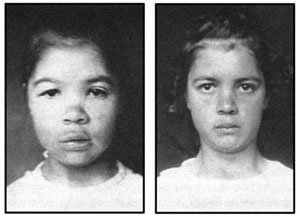
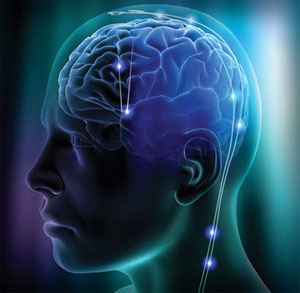
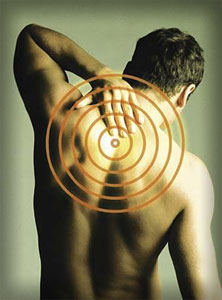
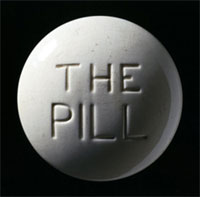 Birth control pills contain small doses of estrogen that increase your body’s estrogen levels up through the time of ovulation. And the increase in estrogen causes the cells of your uterus to consume more oxygen. And when your uterus consumes more oxygen, it literally steals the oxygen that is required to support the implanted egg, or embryo. Without enough oxygen, the egg cannot continue to develop.
Birth control pills contain small doses of estrogen that increase your body’s estrogen levels up through the time of ovulation. And the increase in estrogen causes the cells of your uterus to consume more oxygen. And when your uterus consumes more oxygen, it literally steals the oxygen that is required to support the implanted egg, or embryo. Without enough oxygen, the egg cannot continue to develop. Another common and significant source of estrogen is from estrogenic chemicals such as xenoestrogens which are prevalent in plastics, pesticides, and many other industrial chemicals.
Another common and significant source of estrogen is from estrogenic chemicals such as xenoestrogens which are prevalent in plastics, pesticides, and many other industrial chemicals. This is a major cause of hypothyroidism and infertility that nobody ever hears or talks about. And it has a lot to do with the fact that this is a very controversial topic. But in the end, the research speaks for itself.
This is a major cause of hypothyroidism and infertility that nobody ever hears or talks about. And it has a lot to do with the fact that this is a very controversial topic. But in the end, the research speaks for itself.
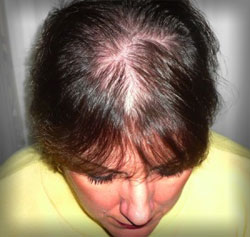 Your hair can go through some noticeable changes when you suffer from hypothyroidism. More often than not, your hair becomes dry, course, and brittle.
Your hair can go through some noticeable changes when you suffer from hypothyroidism. More often than not, your hair becomes dry, course, and brittle.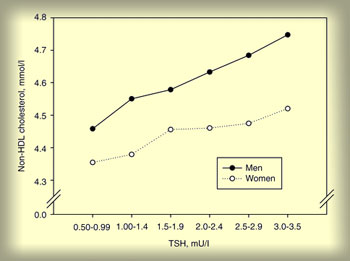 Did you know that your cholesterol levels were directly proportional to your thyroid function? The lower your thyroid function, the higher your cholesterol.
Did you know that your cholesterol levels were directly proportional to your thyroid function? The lower your thyroid function, the higher your cholesterol.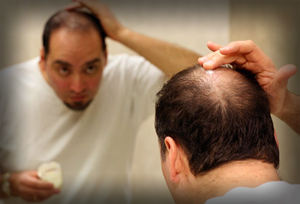 Hair loss is another one of the common thyroid symptoms in men that makes a lot of men uncomfortable.
Hair loss is another one of the common thyroid symptoms in men that makes a lot of men uncomfortable. This is another one of those symptoms that men rarely talked about. But when stress hormones run out of control as is the case commonly found with hypothyroidism, anxiety and depression can take their toll.
This is another one of those symptoms that men rarely talked about. But when stress hormones run out of control as is the case commonly found with hypothyroidism, anxiety and depression can take their toll.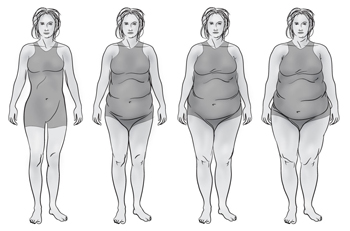 Weight gain, or weight loss resistance, is one of the most well- known thyroid disease symptoms. Most people understand that thyroid hormones regulate metabolism and that when they are askew, it’s common to start putting on extra pounds. What is lesser known is the fact that dieting for such weight gain is usually fruitless.
Weight gain, or weight loss resistance, is one of the most well- known thyroid disease symptoms. Most people understand that thyroid hormones regulate metabolism and that when they are askew, it’s common to start putting on extra pounds. What is lesser known is the fact that dieting for such weight gain is usually fruitless. Hypothyroidism can affect all of the body’s systems and can be especially affective at disrupting the male reproductive system. Symptoms for men can include loss of libido, erectile dysfunction, and even infertility. Fortunately, once you follow the right hypothyroidism treatment protocol to correct the underlying hypothyroidism, these conditions are completely reversible.
Hypothyroidism can affect all of the body’s systems and can be especially affective at disrupting the male reproductive system. Symptoms for men can include loss of libido, erectile dysfunction, and even infertility. Fortunately, once you follow the right hypothyroidism treatment protocol to correct the underlying hypothyroidism, these conditions are completely reversible.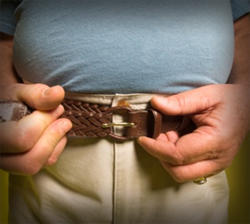 Weight gain is yet another symptom that most men completely write off as a byproduct of age. You may have been an avid athlete in your youth but today, your weight is beyond your control.
Weight gain is yet another symptom that most men completely write off as a byproduct of age. You may have been an avid athlete in your youth but today, your weight is beyond your control.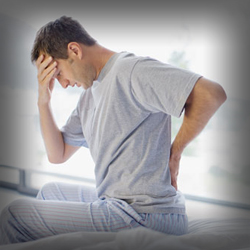 Hypothyroidism is also the cause of a lot of muscle aches, pains, cramps, tenderness, and stiffness as well as pain and swelling in the joints.
Hypothyroidism is also the cause of a lot of muscle aches, pains, cramps, tenderness, and stiffness as well as pain and swelling in the joints.
